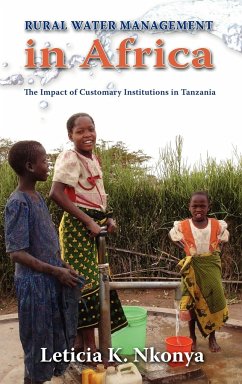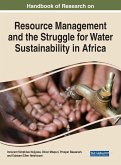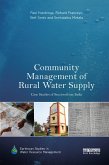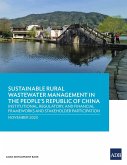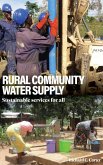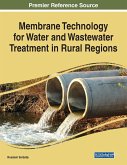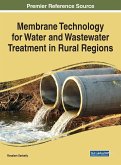As one of the most important natural resources, the management of water is becoming increasingly important as water resources are growing more scarce. This is especially the case for rural areas and developing countries, such as Africa. In sub-Saharan African (SSA) countries today, the demand for water resources is increasing. In this innovative study, the author examines these forms of traditional or customary institutions of water management in a manner that has never been done before. First, the author provides us with an understanding and appreciation of the differential impact of customary institutions on drinking- and irrigation-water management. Most sociological studies on rural water management in SSA have addressed water-management issues without adequately analyzing customary institutions and showing how they affect rural water management. Most studies in river-basin management focus on water for irrigation. Few studies have examined how the customary and statutory institutions influence water management for different water uses. This study looks at how the management of water for domestic use differs from the management of water for livestock and small-scale irrigation. The second unique contribution of this book is the analysis of the role of women and how customary and statutory institutions affect women's participation in water management. Few studies have looked at the role of women and their contribution to rural water management. Previous studies have focused only on the statutory institutions. Finally, the study offers a valuable comparison of the effectiveness of statutory and customary institutions in enforcement of their regulations, resolving natural-resource conflicts, and in ensuring access to water for different uses. Although many researchers recognize the importance of customary institutions, their analysis tends to focus more on the statutory institutions for water management. In this book, both formal and informal water-management institutions are considered for a more balanced understanding. The findings of this study will serve as the basis for formulating policies and programs that include customary institutions in the management of rural water resources in Tanzania. In Tanzania, lack of access to safe water for many rural populations is a major concern. Lack of safe water has implications for rural people and the country as a whole. Policy makers, nongovernmental organizations, planners, and water providers need to be informed so they can incorporate customary institutions into policies and strategies for management of rural water resources. This is an important book for African studies, environmental studies, and policy studies.
Hinweis: Dieser Artikel kann nur an eine deutsche Lieferadresse ausgeliefert werden.
Hinweis: Dieser Artikel kann nur an eine deutsche Lieferadresse ausgeliefert werden.

